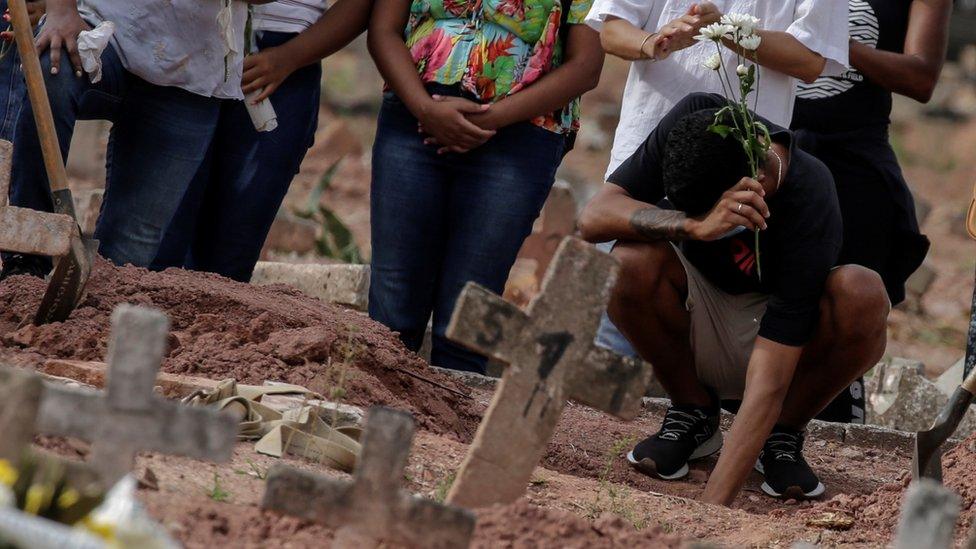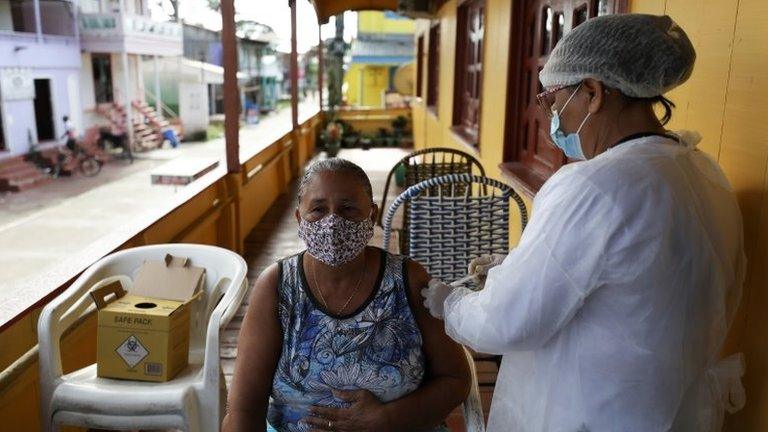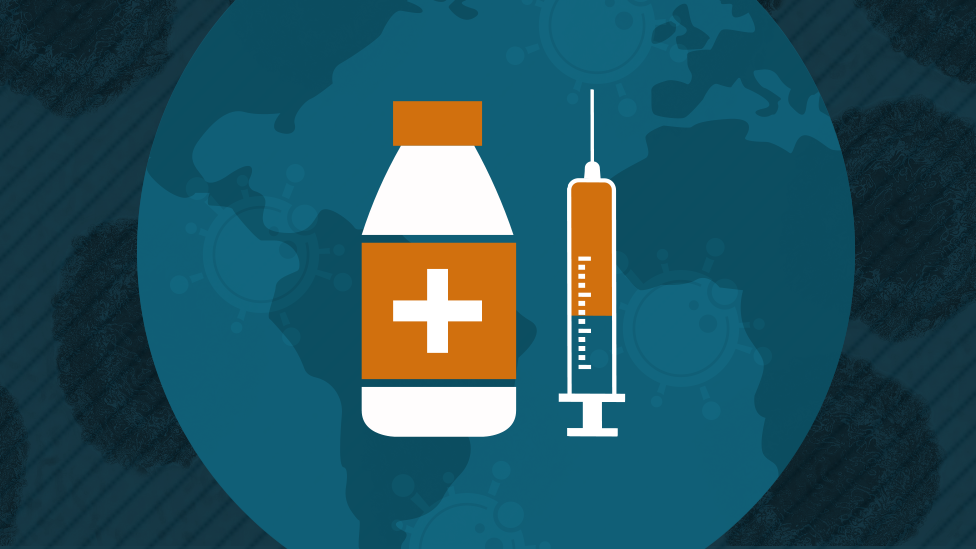Covid: Brazil has more than 4,000 deaths in 24 hours for first time
- Published

Brazil has become the global epicentre of the Covid-19 pandemic
Brazil has recorded more than 4,000 Covid-related deaths in 24 hours for the first time, as a more contagious variant fuels a surge in cases.
Hospitals are overcrowded, with people dying as they wait for treatment in some cities, and the health system is on the brink of collapse in many areas.
The country's total death toll is now almost 337,000, second only to the US.
But President Jair Bolsonaro continues to oppose any lockdown measures to curb the outbreak.
He argues that the damage to the economy would be worse than the effects of the virus itself, and has tried to reverse some of the restrictions imposed by local authorities in the courts.
Speaking to supporters outside the presidential residence on Tuesday, he criticised quarantine measures and suggested without evidence that they were linked to obesity and depression. He did not comment on the 4,195 deaths recorded in the previous 24 hours.




To date, Brazil has recorded more than 13 million cases of coronavirus, according to the health ministry. Some 66,570 people died with Covid-19 in March, more than double the previous monthly record.
"Brazil now... is a threat to the entire effort of the international community to control the pandemic," Dr Miguel Nicolelis, who has been closely tracking cases in the country, told the BBC.
"If Brazil is not under control, then the planet is not going to be safe, because we are brewing new variants every week... and they are going to cross borders," he said.
What is the situation in Brazil?
In most states, patients with Covid-19 are occupying more than 90% of intensive care unit beds, according to the health institute Fiocruz (in Portuguese)., external
Many people are dying at home, an intensive care doctor says
Several states have reported short supplies of oxygen and sedatives. But despite the critical situation, some cities and states are already easing measures limiting the movement of people.
"The fact is the anti-lockdown narrative of President Jair Bolsonaro has won," Miguel Lago, executive director of Brazil's Institute for Health Policy Studies, which advises public health officials, told the Associated Press.
"Mayors and governors are politically prohibited from beefing up social distancing policies because they know supporters of the president, including business leaders, will sabotage them," he said.
The far-right president - who has played down the virus, raised doubts about vaccines and defended unproven drugs as treatment - has seen his popularity plummet amid heavy criticism of his handling of the crisis.
He has shifted his tone on immunisations recently, pledging to make 2021 the year of vaccinations. But the country has struggled with the rollout of its programme.
Critics say his government was slow in negotiating supplies. Only around 8% of the population has been given at least one dose, according to the Our World in Data tracker., external
Epidemiologist Ethel Maciel said Brazil was in a "dreadful situation", telling AFP news agency: "At the rate we're vaccinating... the only way to slow the extremely fast spread of the virus is an effective lockdown for at least 20 days."
What is the Brazil variant?
Fiocruz says it has detected 92 variants of coronavirus in the country, including the P.1, or Brazil variant, which has become a cause for concern because it is thought to be much more contagious.
It is thought to have emerged in Amazonas state in November 2020, spreading quickly in the state capital Manaus, where it accounted for 73% of cases by January 2021, according to figures analysed by researchers in Brazil.
Experts fear the proliferation of the Brazil variant will mean increasing cases for several months.
Dr Nicolelis, who until recently was the co-ordinator of the pandemic response team in north-eastern Brazil, told the BBC that the country's response amounted to a "complete calamity".
"It's the largest human tragedy in Brazilian history," he said.
"We may get to 500,000 deaths by 1 July, that's the latest estimate," he said. "But the University of Washington released an estimate on Friday suggesting that if the rate of transmission goes up by about 10%, we could get to 600,000 deaths."
The Brazil variant has also been linked to a spike in infections and deaths in a number of South American countries.


- Published6 April 2021

- Published1 July 2022

- Published1 June 2022
